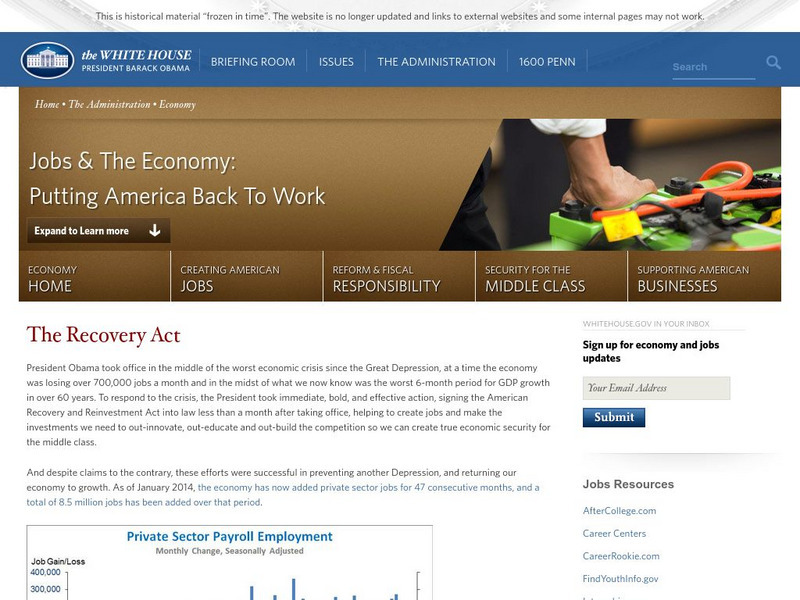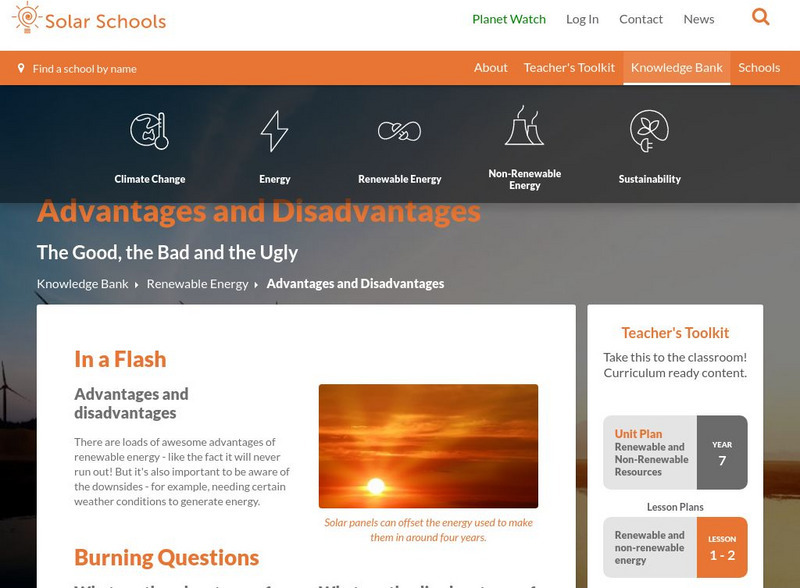Hi, what do you want to do?
Council for Economic Education
Econ Ed Link: u.s. Senate Mulls Over Bankruptcy Legislation
During the week of September 20, 1998, the US Senate agreed to debate a bill (S 1301), intended to make it more difficult for people of means to use bankruptcy to walk away from debt. Those who could pay at least 20 percent of their...
Independence Hall Association
U.s. History: The New Tycoons: J. Pierpont Morgan
J. Pierpont Morgan was not business tycoon who made his money from manufacturing. Read about how he accumulated wealth, how he helped the government through some economic panics, and why the government took him to court.
Auburn University
Auburn University: Glossary of Political Economy Terms: Monetary Policy Defined
This site provides a very thorough definition of the economic concept of monetary policy. The explanation is by Dr. Paul Johnson of Auburn University
Council for Economic Education
Econ Ed Link: Buy a Bond, James: A Lesson on Us Savings Bonds
This site is extremely informative for teaching children the value of saving money. "You will write a persuasive letter telling why people use savings bonds as a way to save their money."
PBS
Pbs: Commanding Heights: Battle for the World Economy: John Maynard Keynes
Profile of Keynes excerpted from Daniel Yergin and Joseph Stanislaw's book on the evolution of the global economy, "The Commanding Heights."
Other
International Monetary Fund: The Imf at a Glance
Key information and facts about the IMF are presented.
Council for Economic Education
Econ Ed Link: Clickety Clack, Let's Keep Track!
This lesson will show learners the importance of keeping track of their savings.
Massachusetts Institute of Technology
Mit: Open Course Ware: The Politics of Global Financial Relations
Take advantage of these resources when analyzing the effects of the globalization of finances domestically and worldwide.
Council for Economic Education
Econ Ed Link: What's My Interest?
Students explore the concept of interest by means of two activities. The first, a simple activity with jellybeans, introduces the concept of interest accruement, and the second, a practical, "real world" activity, reinforces the concept...
Council for Economic Education
Econ Ed Link: Giving Credit
This life lesson will prepare students for the world of credit. "In this lesson, you will analyze the creditworthiness of people who want to borrow. You will also learn how to identify ways to establish your creditworthiness."
Council for Economic Education
Econ Ed Link: Mobile Phones Matter
A lesson exploring whether or not mobile phones matter when it comes to financial management and financial decision-making.
Council for Economic Education
Econ Ed Link: A Penny Saved Is a Penny at 4.7% Earned
There are lots of ways to receive income, and lots of ways to spend it. In this EconomicsMinute you will develop two budgets to help you decide how to allocate your income. Assuming you do not love making dollar bill rings.
Council for Economic Education
Econ Ed Link: Climbing the Savings Mountain
Students discover how saving money can be compared to a mountain climb. The climb can be fast or slow, safe or hazardous, scenic or thrilling. You will find out that there is more than one way to get to the top!
CNN
Cnn Money: Yardeni: Slump to Spread
In 1998, economist Edward Yardeni of Deutsche Bank Securities predicted that the economic difficulties affecting Russia and Asia would soon spread to the US and Europe. In this interview from "Moneyline News Hour with Lou Dobbs," compare...
Siteseen
Siteseen: American Historama: The American System
Comprehensive resource provides detailed facts about Henry Clay and the economic plan called the 'American System'.
Other
Federal Reserve: Discount Rate
This resource presents a list of current and historical discount rates, which the Federal Reserve charges member banks for borrowing funds.
The White House
The White House: Recovery, Your Money at Work
Explains to everyone what the American Recovery and Reinvestment Act of 2009 is meant to do, track the spending associated with the act, and provide accountability for the act.
Other
We the Savers: Young Savers
This resource introduces students to the world of money with this online tutorial. Each unit has its' own online quiz. Brave the desert, climb mountains and dodge alligators while you explore everything there is to know about earning,...
University of Virginia
Miller Center at Uva: u.s. Presidents: Martin Van Buren
Get the facts about the life and administraton of Martin Van Buren (1782-1862), the 8th President of the United States (1837-1841).
Practical Money Skills
Visa: Practical Money Skills for Life
Visa provides a resource that teachers, parents, and students will all enjoy using. There are lesson plans here for all ages, as well as information about spending decisions, budgeting, and money management. Print your own play money,...
Other
Solar Schools: The Advantages and Disadvantages of Renewable Energy
One major advantage with the use of renewable energy is that as it is renewable it is therefore sustainable and so will never run out. Renewable energy facilities generally require less maintenance than traditional generators. Their fuel...
Other
Investment Company Institute
A site to educate the public about the investment company business, encourage investment companies to operate by the highest ethical standards, and promote the interests of fund shareholders.
Digital History
Digital History: Alexander Hamilton's Financial Program
Young Alexander Hamilton was the first Secretary of the Treasury. Read about his ideas for reducing the huge national debt, and see how his views of the nation and national government were so different from Thomas Jefferson's.
Council for Economic Education
Econ Ed Link: Using an Excel Checkbook
Students will use a spreadsheet to enter checkbook transactions and reconcile.






















